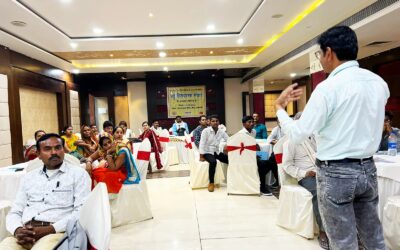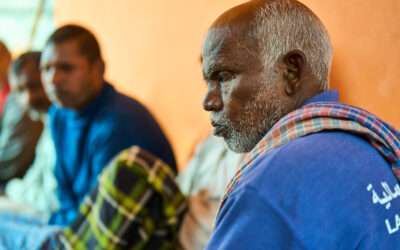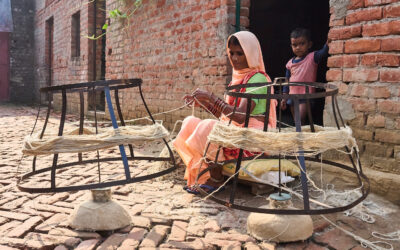Throughout July, our Fashion for Freedom Campaign has been in motion leading up to the United Nations World Day Against Trafficking in Persons at the end of the month. Our campaign supports vocational training programs, providing safe spaces for trafficking survivors to grow and learn. These programs help survivors gain skills to access meaningful employment and rebuild their lives.
Along with the skills training, FTS is able to provide medical and legal assistance, psychological counseling, and educational classes to recent survivors to help them get back on their feet. By supplying vocational training, FTS is targeting some of the underlying factors of slavery that can cause vulnerability to traffickers. These vocational training programs are key to a safe and sustainable future for survivors.
A $50 gift to the Fashion for Freedom Campaign not only gives new hope to trafficking survivors, but gives them a new sense of pride leading them to lives of dignity and freedom.
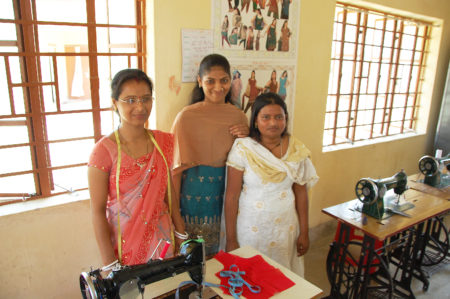
Ashram sewing teacher and students | Photo: FTS/FitzPatrick
Our shelter in India, appropriately named Punarnawa Ashram meaning “beginning of new life,” can house up to 40 women at a time, each staying for about six months. Women are taught useful sewing skills to encourage their economic independence when they enter the workforce. These new job opportunities are the first time many of these women will profit from their hard work in order to support their families.
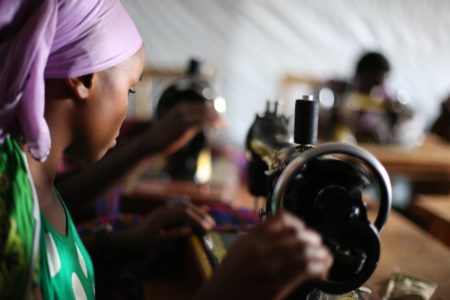
Congo sewing workshop | Photo: FTS/Timpy
In the Congo, FTS also conducts vocational training to provide opportunities to survivors, but the programs are costly and rely on outside support. For the sewing program, training kits cost about $100 and sewing machines for each survivor cost about $200. Training costs also include rentals for a vocational center, fabric and car rental for transporting materials. The training programs give survivors tools, training and support to rescue their children, reunite their families, and protect entire villages from traffickers.
Donate $100 today to provide a training kit for our vocational programs!

Don’t forget if you’re in the Los Angeles area, join us at the third annual Fair Trade Fashion Show fundraiser, a unique event on July 29 that creates a space to celebrate the power of everyday purchases to support freedom. Tickets are on sale now! We hope to see you there!

